Search
Search Results
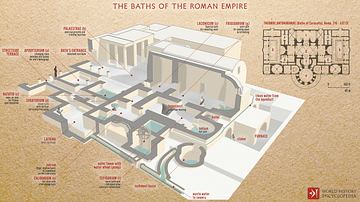
Definition
Roman Baths
Roman baths were designed for bathing and relaxing and were a common feature of cities throughout the Roman empire. Baths included a wide diversity of rooms with different temperatures, as well as swimming pools and places to read, relax...
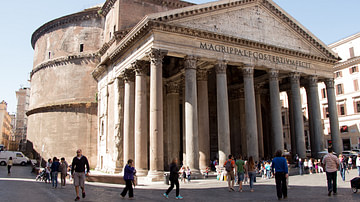
Definition
Pantheon
The Pantheon (Latin: pantheum) is the best-preserved building from ancient Rome and was completed in c. 125 CE. Its magnificent concrete dome is a lasting testimony to the genius of Roman architects. As the building stands virtually intact...
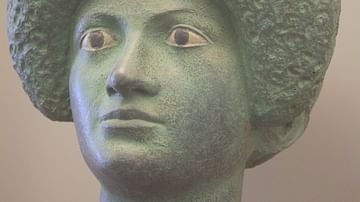
Definition
Roman Art
The Romans controlled such a vast empire for so long a period that a summary of the art produced in that time can only be a brief and selective one. Perhaps, though, the greatest points of distinction for Roman art are its very diversity...
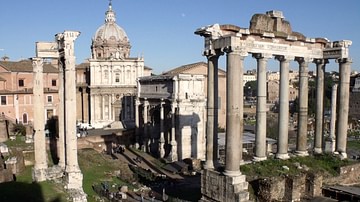
Definition
First Triumvirate
The First Triumvirate of ancient Rome was an uneasy alliance between the three titans Julius Caesar, Pompey, and Crassus which, from 60 BCE until 53 BCE, dominated the politics of the Roman Republic. Alliances have always been a part of history...
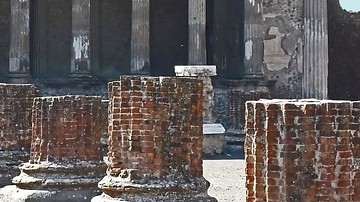
Definition
Roman Law
Roman laws covered all facets of daily life. They were concerned with crime and punishment, land and property ownership, commerce, the maritime and agricultural industries, citizenship, sexuality and prostitution, slavery and manumission...
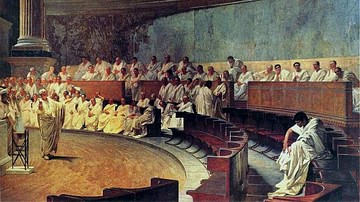
Definition
Roman Senate
The Roman Senate functioned as an advisory body to Rome's magistrates and was composed of the city's most experienced public servants and society's elite. Its decisions carried great weight, even if these were not always converted into laws...
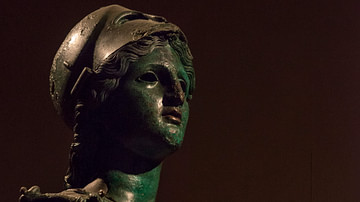
Definition
Minerva
Minerva was the Roman goddess of wisdom, medicine, commerce, handicrafts, poetry, the arts in general, and later, war. In many ways similar to the Greek goddess Athena, she had important temples in Rome and was patron of the Quinquatras festival...
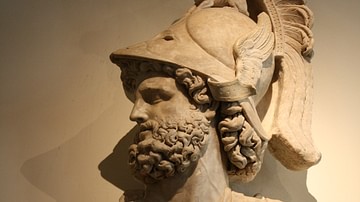
Definition
Mars
Mars was the Roman god of war and second only to Jupiter in the Roman pantheon. Although most of the myths involving Mars were borrowed from the Greek god of war Ares, Mars did have some uniquely Roman features. Mars is considered more level-headed...
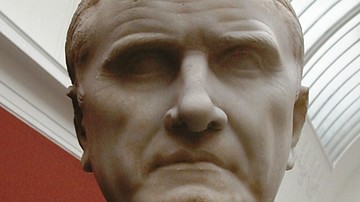
Definition
Marcus Licinius Crassus
Marcus Licinius Crassus (115-53 BCE) was perhaps the richest man in Roman history and in his eventful life he experienced both great successes and severe disappointments. His vast wealth and sharp political skills brought him two consulships...
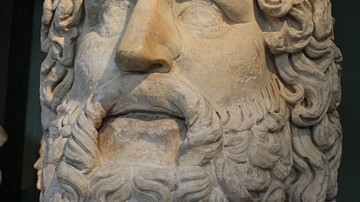
Definition
Jupiter
Among the many gods of the Romans, Jupiter, the son of Saturn, was the supreme god, associated with thunder, lightning, and storms. The first citizens of what would become Rome believed they were watched over by the spirits of their ancestors...